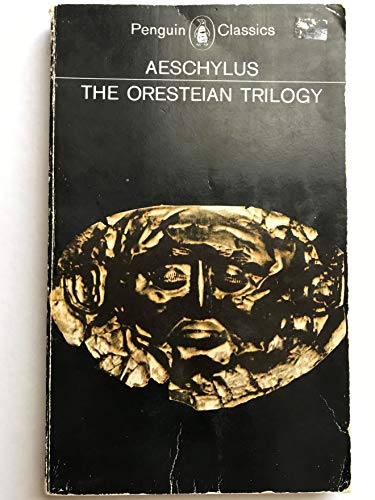The Oresteian Trilogy
Agamemnon, The Choephori, The Eumenides (The Penguin Classics)
Aeschylus (Author); Philip Vellacott (Translator)
BOOK REVIEW

In The Oresteian Trilogy, Aeschylus weaves a masterful tapestry of vengeance, justice, and the inexorable grip of fate that continues to captivate readers centuries after its creation. This monumental work, comprising Agamemnon, The Choephori, and The Eumenides, transcends the bounds of ancient Greek tragedy, offering insight into the human condition that remains eerily relevant today.
As you delve into the tragedy that unfolds in the royal halls of Argos, the pulse of betrayal echoes through the shadows of Agamemnon's return from war. The blood-soaked narrative ignites profound themes-sacrifice, moral ambiguity, and the chilling reality of retributive justice. Can one ever truly escape the chains of their lineage? The dread of familial curses looms over the characters, igniting a relentless cycle of violence that seems unbreakable.
Agamemnon's sacrifice of his daughter Iphigenia rings a haunting chime, provoking a visceral reaction that showcases the depths of a father's ambition against the purity of paternal love. The echoes of this tragedy resonate deeply, compelling the audience to confront their own morality and the decisions that shape destinies. Every line beckons you to interrogate the very essence of justice. What does it mean to pay the debt of blood? Are we, as mortals, destined to be haunted by our ancestors' sins?
As the story unfolds through the harrowing wails of Clytemnestra, the wrath of a betrayed wife becomes the crucible in which revenge is catalyzed. Her chillingly calculated murder of Agamemnon is not simply an act of domestic vengeance; it is a declaration of power that demands the reader's respect and fear. Can we empathize with a woman driven to extremes? Aeschylus challenges us to grapple with our biases, forcing us into the tumultuous psyche of his characters.
But the journey does not end with bloodshed. The Choephori introduces Orestes, whose return marks the continuation of this tragic lineage. His choice to avenge his father's death encapsulates the struggle between moral duty and the psychological torment of carrying out such a deed. The specter of the Furies-vengeful spirits embodying the guilt that follows crime-adds haunting depth to the narrative, making us feel their suffocating presence alongside Orestes. Their relentless pursuit of justice becomes a powerful metaphor for societal obligations to respond to transgressions.
And just when you might think you have reached the climax of chaos, The Eumenides dramatically shifts the paradigm, paving the way for a resolution that reflects the evolution of human justice. Aeschylus introduces the idea of trials and a legal system-the transition from personal revenge to a structured society searching for equilibrium. By reflecting on societal progress, Aeschylus invites the reader to ponder-can justice truly be served? Or is it merely a fragile construct, prone to the whims of humanity?
Readers have expressed a cacophony of opinions regarding this powerful trilogy, praising its intricate characters and thought-provoking themes while grappling with the sometimes archaic language of the text. Some have lauded it as an essential lens to understand the roots of modern justice systems, arguing that the moral quandaries depicted remain timeless. Conversely, critics have pointed out that the cultural gap may hinder contemporary readers from fully engaging with its nuances.
The immortal questions posed in The Oresteian Trilogy compel us to confront our own ethical landscapes. In a world rife with injustice and personal vendettas, Aeschylus's exploration of human motives and the consequences of our choices remains a critical commentary that resonates profoundly today. Join the ongoing conversation about justice, vengeance, and the spectral hold of the past-get swept away in this haunting epic that leaves no emotion untouched. 🌌
So, as you step into the realm of Aeschylus, let the weight of this ancient tragedy bear down upon your conscience, propelling you into reflection and, perhaps, a higher understanding of your own moral compass. Would you dare to take the plunge? 🌀
📖 The Oresteian Trilogy: Agamemnon, The Choephori, The Eumenides (The Penguin Classics)
✍ by Aeschylus (Author); Philip Vellacott (Translator)
1961
#oresteian #trilogy #agamemnon #choephori #eumenides #the #penguin #classics #aeschylus #author #AeschylusAuthor #philip #vellacott #translator #PhilipVellacottTranslator